Many Hopkinton residents say it’s time to get rid of the pay-by-bag program
|
Published: 06-11-2024 2:27 PM
Modified: 06-11-2024 5:08 PM |
As a young parent, Dave Depiano is constantly frustrated by having to throw away things at home like his pots and pans every six months because they just don’t last like they used to decades ago. This means he generates more trash, and with Hopkinton’s unpopular pay-by-bag program — which barely sees 15% compliance — he’s had enough.
“Why are we trying to double down on a failed program of green plastic bags, and put more plastic into the earth?” Depiano said at the town’s public input session on Monday evening. “We already know and I guarantee anyone who’s used them in this town tell you that they are terrible quality and sometimes you can’t even find the right size.”
For the past 14 years, Hopkinton has struggled to enforce its pay-by-bag program. This issue has repeatedly been brought to town meetings, and though residents have narrowly voted to keep it, the dissatisfaction remains high.
At the latest public input session on Monday evening, the majority of the over 50 residents who attended made it clear: They dislike the bags and want the program gone.
“If we can’t figure out if this one is a win or loss, it’s a loss because that tells me that we’re working really hard to make it a win,” said Rita Blanchard, a Hopkinton resident.
The pay-by-bag program was initially launched to help fund the operation of the transfer station and encourage residents to reduce their waste. However, both objectives have fallen short due to very low compliance.
“Getting rid of trash is a shared service,” Depiano said, explaining that everyone should share the cost of managing the transfer station, just like other essential services such as the fire department. “I’m very okay with paying my taxes and I already do when we have to true up at the end of the year to cover the cost of the transfer station.”
In addition to dealing with compliance issues in their town, Hopkinton shares its transfer station with Webster. Webster covers 25% of the operational costs but does not have a pay-by-bag ordinance.
Article continues after...
Yesterday's Most Read Articles
 By all appearances, Canadians are leery of coming to NH
By all appearances, Canadians are leery of coming to NH
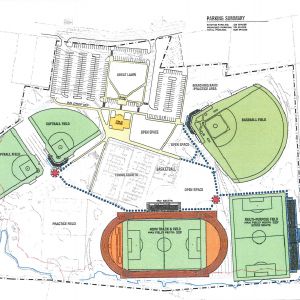 Plans advance on $27M Memorial Field project
Plans advance on $27M Memorial Field project
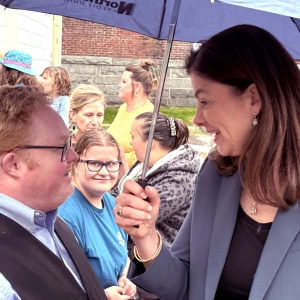 “A dream come true” – Family opens housing for adults with disabilities in Concord
“A dream come true” – Family opens housing for adults with disabilities in Concord
 Memorial Day events in the Concord area
Memorial Day events in the Concord area
 Giving life back to board sports: Back Alley Boards upcycles boards into art
Giving life back to board sports: Back Alley Boards upcycles boards into art
 ‘I thought we had some more time’ – Coping with the murder-suicide of a young Pembroke mother and son
‘I thought we had some more time’ – Coping with the murder-suicide of a young Pembroke mother and son
This means that at the shared transfer station on East Penacook Road, the hopper is filled with a sea of different colored trash bags.
“The Webster part of our problem really is something that we shouldn’t or can’t or don’t talk about it,” said Candy Garvin. “We can all get the green bags. But when you go to the transfer station and see all the others from Webster without any bags, that is a needle.
Many residents find the green bags to be flimsy and prone to ripping, often requiring double bagging. Instead, they said the select board’s suggestion of the $5 permit sticker for cars to dump waste at the transfer station, would be better and also help prevent residents from other towns from illegally dumping their trash here.
However, some residents, like Jack Ruderman, acknowledge that while the program has flaws, the green bags work fine for them. Ruderman suggests improving the program with better education, better bags and clearer signage at the transfer station to ensure its success.
“Let’s fix the bags. Let’s give it a shot and tell people why we’re doing this – the goal is to reduce waste and reduce the cost of transportation and give it a shot and see if it works,” explained Ruderman.
The lack of compliance has been evident over the years, but the data presented by Bonnie Christie, a member of the waste reduction committee, was staggering.
In 2011, revenue from green bag sales was $121,000, but by 2022, it had plummeted to $17,000.
“The fewer green bags were purchased and used, the lower our recycling rate went,” said Christie, showing pictures of the waste dumped in the hopper. She pointed out how many of those items were recyclable and could generate revenue for the town if properly recycled. “We are creating way more tonnage of waste and we are recycling far less percent of that waste.”
Residents were not only disapproving of the green bags but also unhappy about proposed changes to the fees for dumping specific items at the transfer station, especially the increase in commercial tipping fees from $70 to $120.
Many residents have a private hauler pick up their waste and were worried about how this increase would affect their rates with the hauler. If the private hauler brings only green bags to the transfer station there is no tipping fee.
Cettie Connelly expressed confusion over the select board’s rationale for why private haulers are charged a fee for collecting waste from homes in Hopkinton to bring it to the transfer station. But if she were to do the same, as a resident, she wouldn’t incur any charges.
“Not only am I being charged my taxes, but my hauler is being charged and my prices are going to go up so I’m being double taxed,” said Connelly.
After considering resident feedback, rather than implementing proposed increases in bag prices and hiring full-time staff to enforce green bag usage, the select board opted to maintain the status quo until the next town meeting.
“I think the fact that we have never figured out a real way to do enforcement to me that speaks for itself,” said Sabrina Dunlap, select board chair. “I think overwhelmingly I’m hearing even outside of this room people saying like we are sick of it, it doesn’t work and why do you continue to put this on us.”
Sruthi Gopalakrishnan can be contacted at sgopalakrishnan@cmonitor.com.

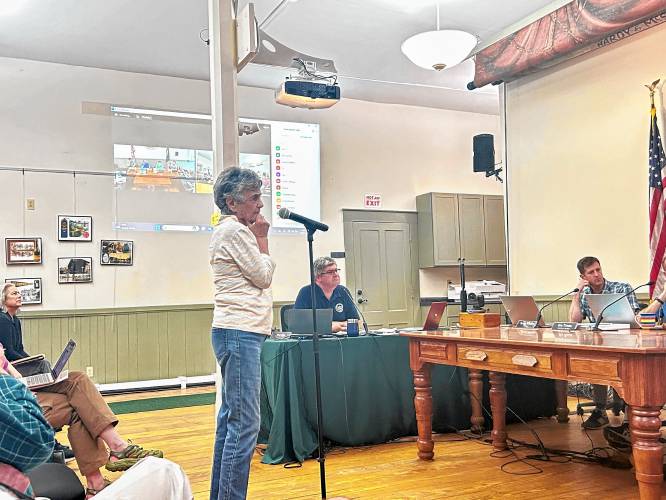

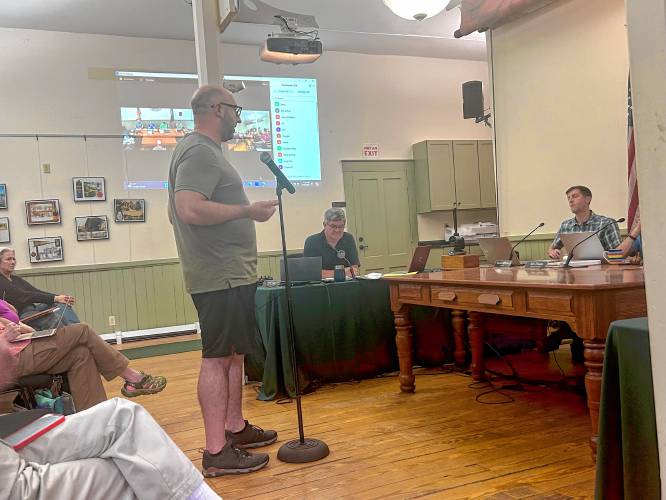






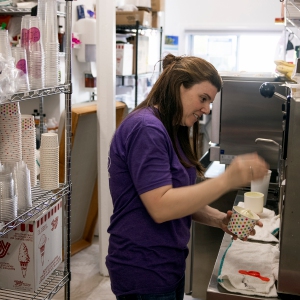 ‘The smiles say it all’: Sweet Dreamz brings creative soft-serve to Penacook
‘The smiles say it all’: Sweet Dreamz brings creative soft-serve to Penacook  Drought is completely gone from New Hampshire – maybe it can stop raining now?
Drought is completely gone from New Hampshire – maybe it can stop raining now?
